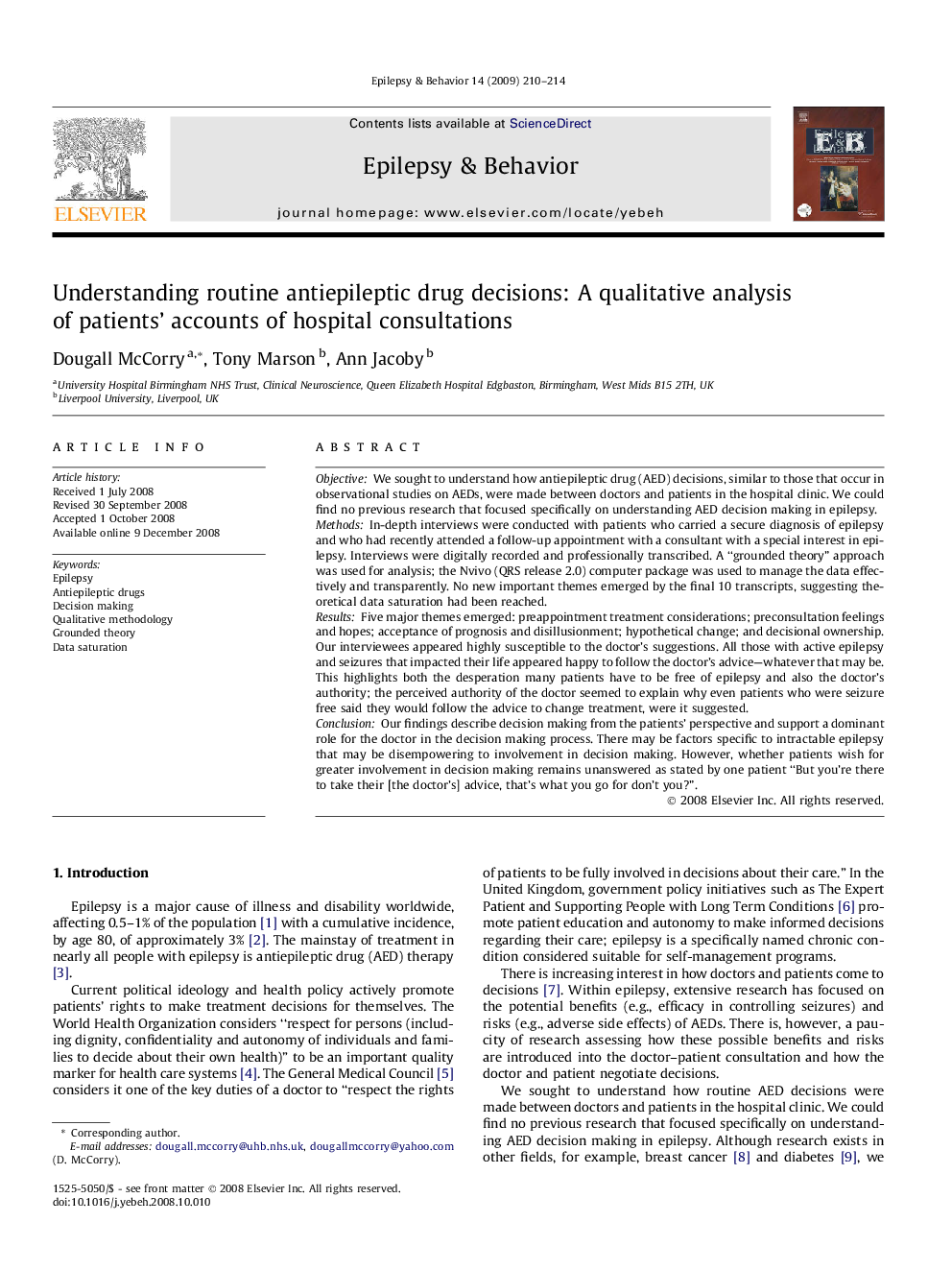| کد مقاله | کد نشریه | سال انتشار | مقاله انگلیسی | نسخه تمام متن |
|---|---|---|---|---|
| 3051049 | 1185970 | 2009 | 5 صفحه PDF | دانلود رایگان |

ObjectiveWe sought to understand how antiepileptic drug (AED) decisions, similar to those that occur in observational studies on AEDs, were made between doctors and patients in the hospital clinic. We could find no previous research that focused specifically on understanding AED decision making in epilepsy.MethodsIn-depth interviews were conducted with patients who carried a secure diagnosis of epilepsy and who had recently attended a follow-up appointment with a consultant with a special interest in epilepsy. Interviews were digitally recorded and professionally transcribed. A “grounded theory” approach was used for analysis; the Nvivo (QRS release 2.0) computer package was used to manage the data effectively and transparently. No new important themes emerged by the final 10 transcripts, suggesting theoretical data saturation had been reached.ResultsFive major themes emerged: preappointment treatment considerations; preconsultation feelings and hopes; acceptance of prognosis and disillusionment; hypothetical change; and decisional ownership. Our interviewees appeared highly susceptible to the doctor’s suggestions. All those with active epilepsy and seizures that impacted their life appeared happy to follow the doctor’s advice—whatever that may be. This highlights both the desperation many patients have to be free of epilepsy and also the doctor’s authority; the perceived authority of the doctor seemed to explain why even patients who were seizure free said they would follow the advice to change treatment, were it suggested.ConclusionOur findings describe decision making from the patients’ perspective and support a dominant role for the doctor in the decision making process. There may be factors specific to intractable epilepsy that may be disempowering to involvement in decision making. However, whether patients wish for greater involvement in decision making remains unanswered as stated by one patient “But you’re there to take their [the doctor’s] advice, that’s what you go for don’t you?”.
Journal: Epilepsy & Behavior - Volume 14, Issue 1, January 2009, Pages 210–214